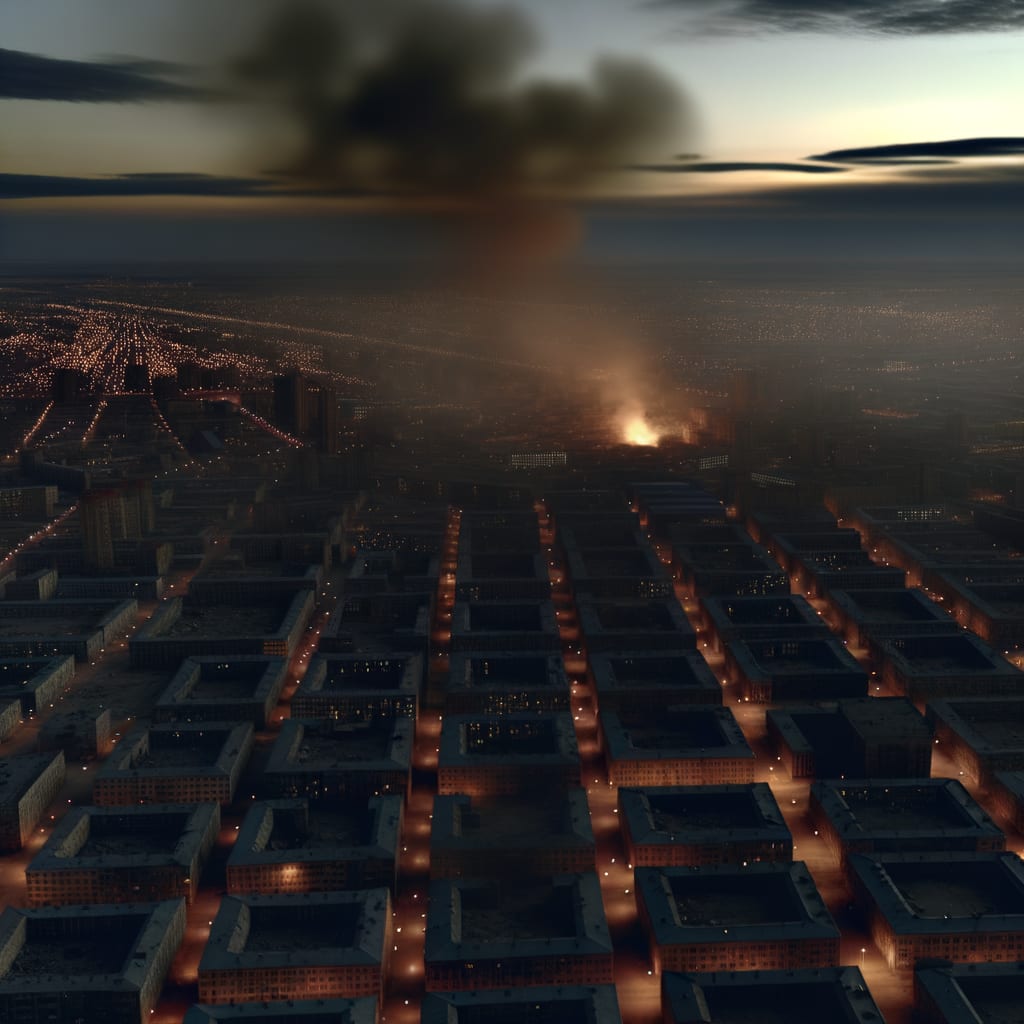Massive Russian Air Attack on Ukraine: 550 Missiles and Drones Launched
In the early hours of July 4th, Ukraine was hit by the largest Russian air attack since the start of the war, primarily targeting the capital, Kiev. Russia launched over 550 air weapons, including 539 drones and 11 missiles according to Ukraine's air force. The attack resulted in at least 23 injuries and set off dozens of fires across the city.
Background and Context
This large-scale attack came in the wake of a disappointing phone call between U.S. President Donald Trump and Russian President Vladimir Putin. The leaders had been in dialogue about a potential ceasefire, but Trump stated that there had been no progress made with Moscow. This sentiment was echoed by Trump's statement that Putin was not going to stop the war.
Key Developments
The Ukrainian air defence was able to intercept a significant number of the incoming airstrikes. Ukrainian forces shot down 270 targets, including two cruise missiles. Another 208 targets were lost from radar and presumed jammed. Despite these defensive efforts, almost every district in Kiev sustained damage, and the city was described as being on fire.
In the deserted streets of Kiev, the lights remain off: everyone is in shelter. The city is on fire, reported special correspondent Ariane Chemin for Le Monde.
Implications and Reactions
President Volodymyr Zelensky of Ukraine called for more air defence after the attack, stating that the first air raids began almost simultaneously with the media discussions about Trump's phone call with Putin.
Russia is once again demonstrating that it is not going to end the war and terror, Zelensky said.
Tymur Tkachenko, head of the Kyiv City Military Administration, warned residents to close their windows due to dangerous levels of combustion products in the air.
Russia, a terrorist country, has wreaked havoc,Tkachenko wrote on Telegram.The Russians bring nothing but terror and murder. That is a fact.
Current Status
The crisis continues to escalate as Russia persists in its war on Ukraine, a conflict that has been ongoing for over 1,226 days. This attack is the latest in a series of almost weekly large-scale missile and drone attacks that have been launched by Russia. The Ukrainian Armed Forces reported on July 4 that Russia has lost 1,024,210 troops since the beginning of its full-scale invasion on Feb. 24, 2022.
Despite the massive scale of the attack and the significant damage to the capital, Ukraine's air force has demonstrated its resilience by intercepting a majority of the incoming air targets. As the conflict continues, the international community is closely watching the developments, hoping for a peaceful resolution.

